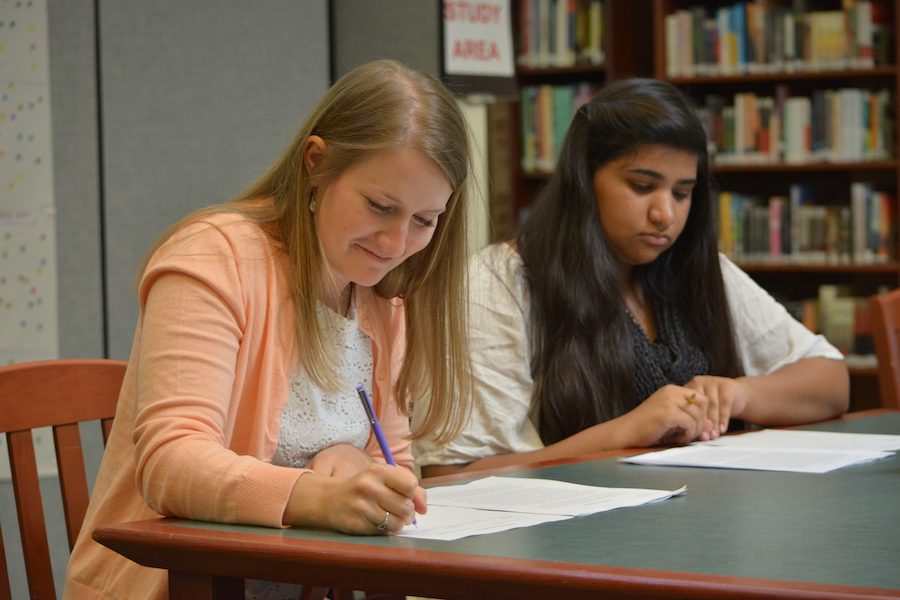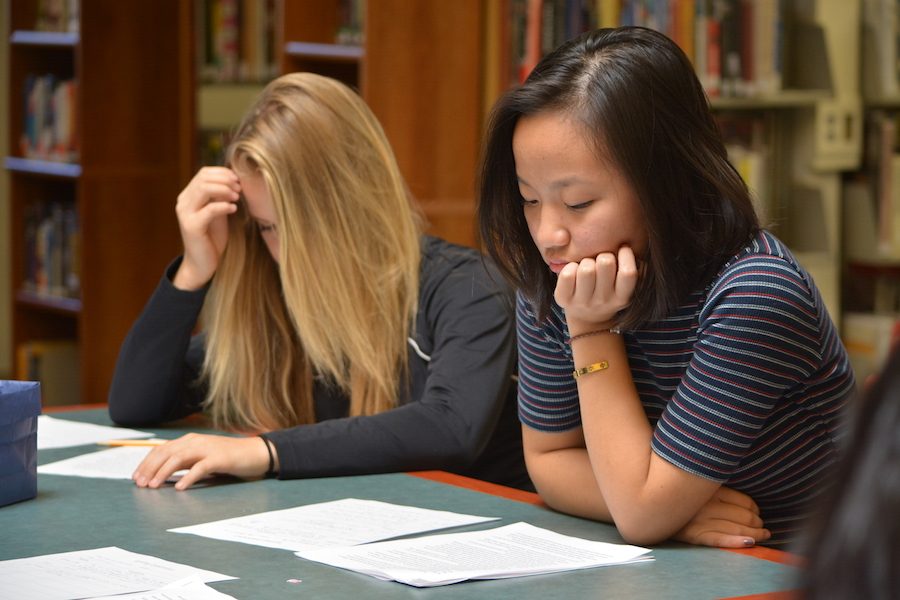Sophomores share writing at second annual Writing Celebration
October 7, 2016
Sophomores in English 200/H shared their narrative writing pieces in the second annual Writing Celebration. Students from different classes met in the library to share work and reflect on their learning over the course of the narrative writing unit.
While the majority of the unit stayed the same in comparison to last year, this year, students were asked to reflect on learning targets at the end of the unit. The students were asked to rate themselves on a communal learning target board using stars which was on display in the library. Generally, the learning targets in this unit measured a student’s ability to practice writing, revise and offer feedback to others throughout the writing process.
“One thing that we incorporated with this celebration is that we added the learning targets that we’ve been working on throughout the unit. Students rated themselves at the beginning of the unit, and now they really have a chance to reflect and think about and reflect on their growth,” English teacher Katie Buckley said.
Throughout the unit, most classes included a mini-lesson, practice and a sharing component. The unit started with a series of “flash drafts” which are used to generate ideas for writing. For about two weeks, the sophomores then practiced a series of narrative techniques. The final week of the unit was spent revising and conferencing.
“I really liked all the drafts that we did in class. I thought that it was really helpful, and it really helped make every piece come to life and made it more exciting to read,”sophomore Haoyi Wang said.
Sophomore Bryce Cullen added that it was through the process of drafting that he was able to turn his writing into something more meaningful.
“When I was writing my narrative, at first I had started off with like a fun, childhood memory, but when I was done with it I had realized that there was actually a good theme that was portrayed throughout the story that I hadn’t noticed before,” Cullen said.
Generating an idea through drafting is one of several skills that students will develop throughout the narrative unit. According to English teacher Kaitlin McIntyre, the skills learned can be applied to their work in later years.
“In narrative, we are working on how to convey a story in an engaging way, and that’s essentially how you are going to hook readers into your college essays, which is often times what students see as the first real world writing experience they have,” McIntyre said.
In order to better model this process, the teachers wrote alongside the sophomores. They practiced the daily skills with them and shared models.
“It is important to write alongside our students because they need to see the process of good writing. We can’t always just show kids the end product and say ‘here, get to this.’ We have to show them how to get there and what real writers do in their decision-making and problem-solving,” McIntyre said.
And while writers improve their skills, students found that writing narrative helps them within their own lives.
Wang said, “It’s important [to write narrative] because you get to reflect on yourself and what you’ve been doing. For me, I wrote about something that was really personal and it gave me a chance to reflect and to see mistakes that I made and things that I wanted to improve on.”



